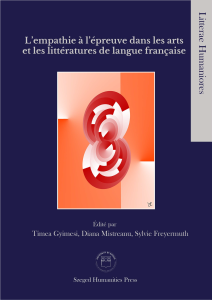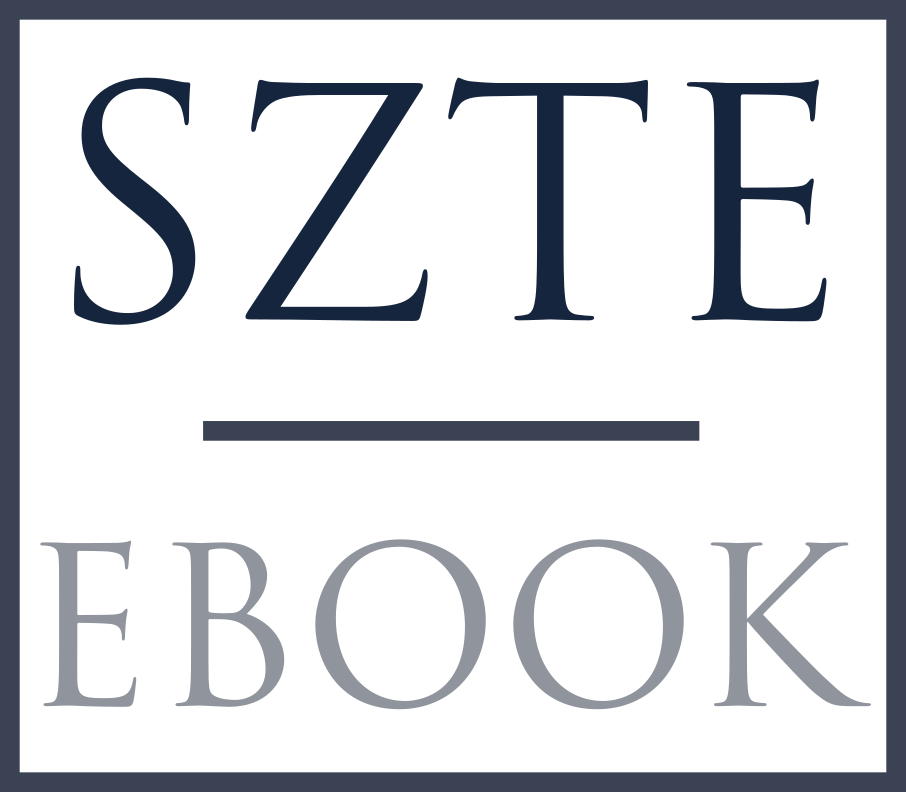L’empathie à l’épreuve dans les arts et les littératures de langue française
Keywords:
visual arts, aesthetics and empathy, contemporary French literature, empathy, emotional and ethical turn in literature, narrative empathy, pseudo-empathy, théory of care, Theory of MindSynopsis
The edited volume brings together 24 selected contributions from the international conference Empathy, held in Szeged from November 24 to 26, 2023. The writings of speakers from nine countries (Hungary, Bulgaria, Romania, Italy, Germany, Luxembourg, France, Spain, Canada) explore, within the context of French-language literatures and arts, the philosophical and theoretical foundations of empathy research linked to the affective and ethical turn (Alexandre Gefen), drawing on the works of Husserl, Robert Vischer, and Theodor Lipps. The contributions address the contemporary grounding of the concept of empathy in philosophical and ethical spheres, highlighting the relevance of its study in literature and the arts. They are based on notions of narrative empathy (Suzanne Keen), autotheory (Lauren Fournier), and represented and elicited empathy, with the hope that the analysis of works will shed light on the poetic tools (narration, style) that can carry empathy in literary texts (several studies emphasize the role of indirect discourse in this process).
The contributions highlight that the examination of empathy and all associated relational concepts – such as pragmatist philosophy (Ch. S. Peirce, J. Dewey, W. James), attention (Yves Citton, Natalie Depraz), or the concept of milieu (Deleuze-Guattari, Bruno Latour, Tim Ingold) – contributes to a better epistemological understanding of our contemporary world and its systemic crisis, namely the Anthropocene. This approach exposes emerging modes of existence detected through empathy, i.e., by means of a challenging conceptual shift. The volume offers a precise and sensitive vision of the creativity and effectiveness of this nomadic concept, crossing multiple disciplines, making manifest the pragmatist (receptive-oriented) turn in contemporary arts and literature, a turn initiated by cognitive sciences. It presents significant material in literary (French, Canadian, African French-language literatures), artistic (visual arts, design, cinema, theater, novelization), philosophical (E. Husserl, Gilles Deleuze, Félix Guattari, Étienne Souriau), ethical (Stanley Cavell, Martha C. Nussbaum, Carol Gilligan, Sandra Laugier), and theoretical (literary studies and neuropsychology) areas (Alain Berthoz, Jean Decety, Alexandre Gefen, Suzanne Keen, Françoise Lavocat, Jean-Marie Schaeffer). The volume addresses the mediating role of empathy in a synthetic manner, studying its operational principles and identifying its limits in often marginal literary and intermedial materials, with the aim of integrating these texts, through their analysis, as a constructive part of social space. In this perspective, literature and the arts hold a creative power to shape reality.
After the Introduction, the studies are organized into four chapters, according to thematic, conceptual, and disciplinary divisions:
- Empathy and the Ethics of Care. Theoretical Issues
- Empathy, Intermediality, and Visual Arts
- Linguistic Imagination, the Limits and Disorders of Empathy
- Narrative Approaches to Empathy in French-Language Literatures
The final chapter of the volume publishes some poems and visual works by the young French poet Simon-Gabriel Bonnot, who was invited to the conference.
The volume includes the bio-bibliographical data of the authors.


